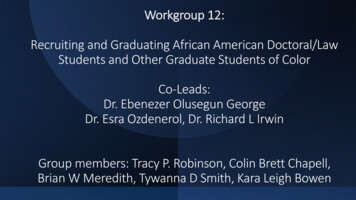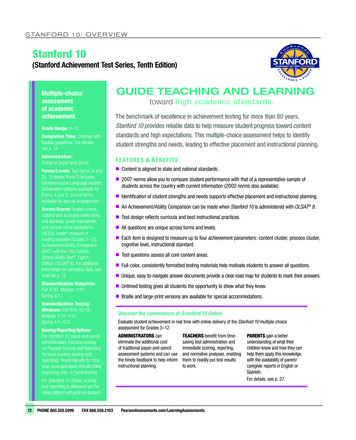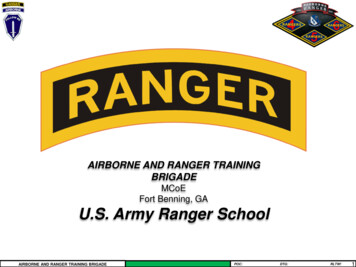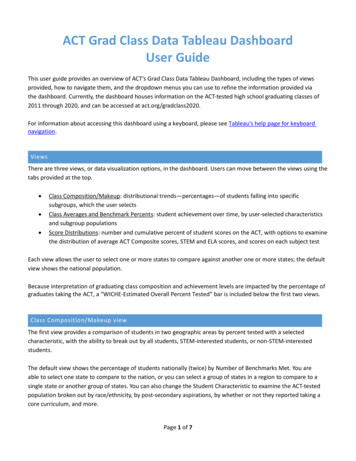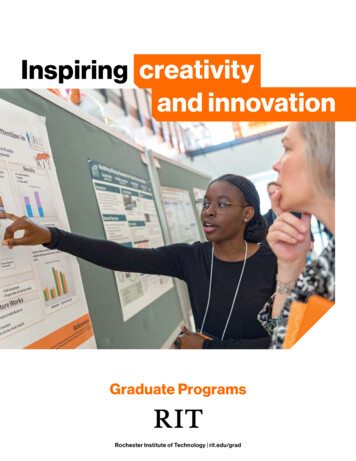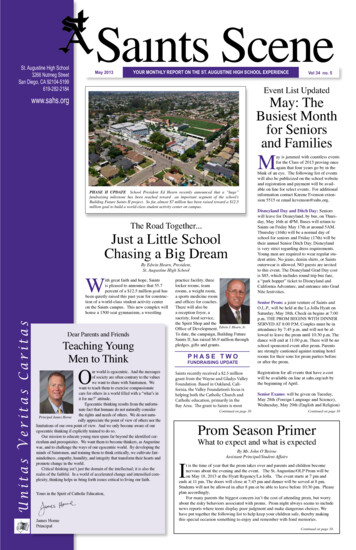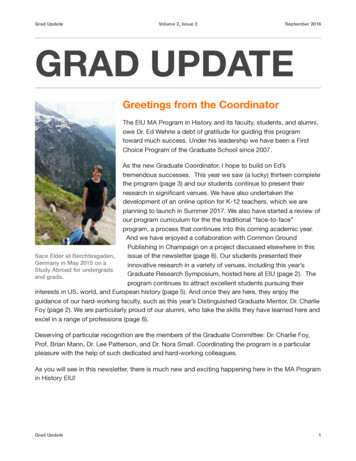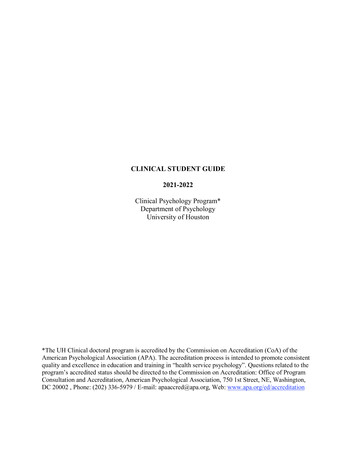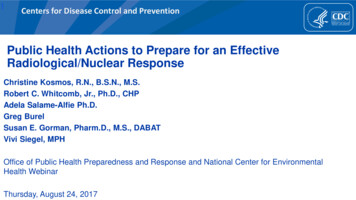
Transcription
Psychiatrists (MD degree) Psychologists (PhD, PsyD, EdD – doctoral level)– Clinical– Counseling Therapists/psychotherapists (master’s degree orhigher)– Social Work – counseling certification (MSW-C)– Mental Health Counselor– Psychiatric Nurse Working in Schools (master’s degree or higher)– School Psychology– School Counseling
In the US, each state regulates applied practice To become certified or licensed, your training programshould be accredited by a NATIONAL organization(suggests minimal training standards are met)– Find the relevant national organization (Google!) and theirlist of accredited programs. Some examples: Clinical psychology programs should be APA accredited Counseling psych programs should be ACA accredited School psychology programs should be NASP accredited Marriage and family therapy programs should be AAMFTaccredited For master’s degrees in education/counseling, programsshould be CACREP (Council for Accreditation ofCounseling and Related Educational Programs) accredited
A graduate degree is not sufficient for practice! Plan for fees, exams, supervised practice AFTER yougraduate (specifics vary across states). Experience requirements: often several years postgrad and may involve paying for supervision See this website for specific NYS Regulations:www. op.nysed .gov/proflist/htmSome examples of POST GRADUATION requirements: Psychologists need 2 yrs supervised full time practice Mental health counselors need 3 yrs of supervised fulltime practice (not earned within one’s own privatepractice!)
Practice is a huge responsibility. Ethically, you shouldbe as well-trained as possible before you practice Choose an accredited training program with– A small faculty/student ratio (how much time, attention willyou get in learning to work with clients?)– Faculty and training sites that match your specificinterests and career goals Not all psychologists/helping professionals are trained towork with all clients. Pick programs with– faculty supervisors trained in your areas of interest– placements working with the clients you want to help Different programs vary in terms of academic focus,helping orientation (e.g., problem versus process focus,psychodynamic versus cognitive behavioral)
A broad undergraduate course selection isvalued (not just those in the social sciences!)Grad school is when you specialize. Most programs have GPA cutoffs (3.0 for manyprograms, 3.5 for clinical psych) Most reputable programs require the generalGRE (see ETS website for info about test dates) Helpful to have some “clinical” experiences(crisis line, co-ops, volunteering, internships,Resident Assistant positions), even better ifrelated to your interests
Professionally-focused personal statement– Personalize to show the match between yourinterests/career goals and the specific trainingoffered by that specific program– Be honest but selective; revealing sensitivepersonal info to strangers suggests poorboundaries Strong letters of recommendation– Waive your rights to view (or not taken seriously)– Emphasis on interpersonal and communicationskills, intelligence, reliability (so be sure to givewriters enough time & info to write the letter!)
Insider's Guide to Graduate Programs inClinical & Counseling Psychology– Publisher: Guilford Press - 800-365-7006 www.guilford.com Getting In: A Step-by-Step Plan for GainingAdmission to Graduate School in Psychology– Publisher: American Psychological Association- 800-374-2721 – www.apa.org The Complete Guide to Graduate SchoolAdmission: Psychology & Related Fields– Publisher: Lawrence Erlbaum - 800-926-6579 –www.earlbaum.com
Insider's Guide to Graduate Programs in Clinical & Counseling Psychology - Publisher: Guilford Press - 800-365-7006 - www.guilford.com Getting In: A Step-by-Step Plan for Gaining Admission to Graduate School in Psychology - Publisher: American Psychological Association - 800-374-2721 - www.apa.org The Complete Guide to .

![typoscript [AK] - 28.04.2022 - Seite 1 - 3. Korrektur 227000038/1 .](/img/31/246276-557981bc-27db-5e94-b0b2-b4bf05b1a829.jpg)
